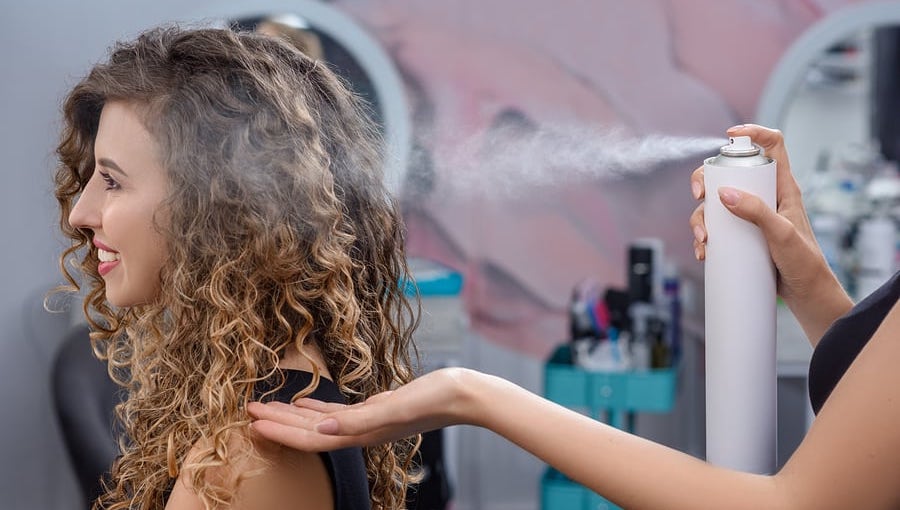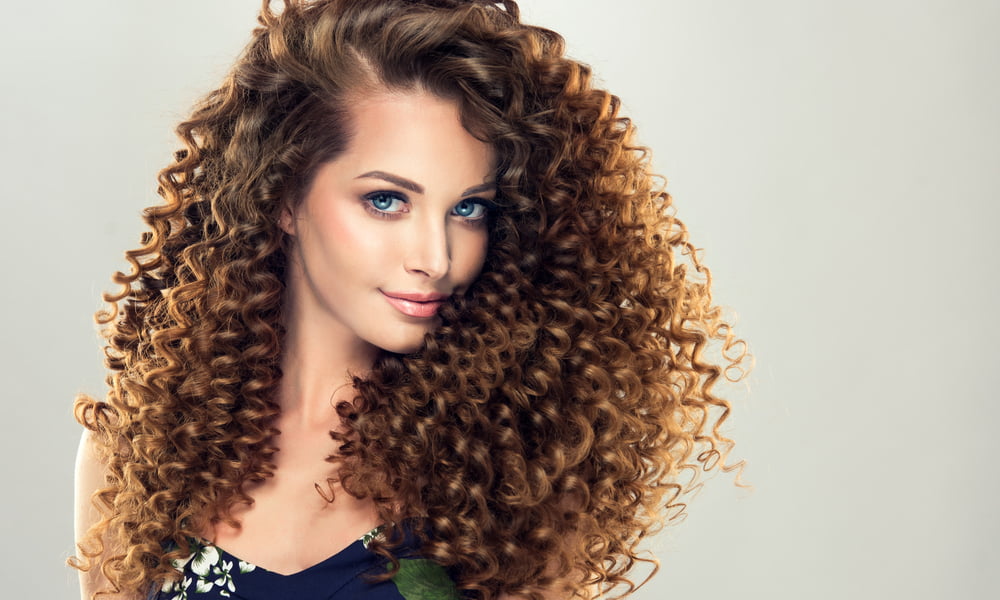Is Dimethicone Bad for Hair? Risks and Alternatives
The quest for smooth, silky hair often leads us down the path of countless hair products. “Is dimethicone bad for hair?” - a popular ingredient in these products, has been a topic of debate for years.
Is it a miracle worker or a hidden villain?
In this blog post, we’ll explore the science behind dimethicone, its potential risks, and the alternatives that can help you achieve healthy, luscious locks without the drawbacks.
Short Summary
-
Dimethicone is a common ingredient in hair and skincare products, but it can lead to buildup and damage over time.
-
Natural alternatives such as oils and plant-based emollients offer similar benefits without the risks associated with dimethicone use.
-
Regularly monitoring your hair’s health, using clarifying treatments to remove product buildup, and selecting lower concentrations of dimethylcone are key for safe & effective usage.
Understanding Dimethicone: What It Is and How It Works

I LOVE MY HAIR NOW
FullyVital hair serum and hair vitamins made tremendous improvements in my hair. I truly love my hair now.
Meg S.,
Dimethicone is a silicone-based polymer commonly found in hair and skincare products, providing a smooth texture and locking in moisture.
But is it all good news? Does dimethicone cause hair thinning and hair loss?
It’s essential to understand how dimethicone works and how it affects your hair to make an informed decision about incorporating it into your hair care routine.
The Role of Dimethicone in Hair Products
Dimethicone:
-
Forms a protective coating on hair strands, delivering a glossy finish and making detangling a breeze
-
Can be beneficial when using heat styling tools, as it helps retain hydration and reduces frizz
-
However, its silicone coating can cause a buildup on hair and scalp, leading to weakened strands and, ultimately, breakage and hair loss
When it comes to hair products, it’s crucial to weigh the benefits and drawbacks of dimethicone. While it can improve your hair’s appearance in the short term, the potential long-term damage may not be worth it.
Fortunately, there are alternatives to dimethicone that can provide similar results without the risks. Some alternatives to consider include:
-
Argan oil
-
Coconut oil
-
Jojoba oil
-
Shea butter
-
Aloe vera gel
These natural alternatives can help nourish and protect your hair without the potential negative effects of dimethicone.
How Dimethicone Affects Hair Cuticles
Dimethicone provides a smooth finish to hair cuticles, but it may lead to dryness, brittleness, and hair loss if it builds up.
The hair cuticle serves as a protective barrier for hair strands and regulates moisture and product absorption into the hair shaft.
When dimethicone coats the skin, it can restrict moisture, causing dryness, brittleness, and hair breakage.
By understanding how dimethicone interacts with hair cuticles, we can better assess its potential risks.
The key is finding a balance between enjoying the benefits of dimethicone and avoiding the pitfalls associated with its buildup.
The Drawbacks of Dimethicone: Why It Can Be Harmful to Hair
While dimethicone can undoubtedly provide a sleek and silky texture to hair strands, it also comes with its share of drawbacks.
Product buildup on the scalp, weighing down fine hair, and difficulty removing it from hair can all lead to damage and hair loss.
Knowing the potential risks associated with dimethicone is the first step in making informed choices about your hair care products.
Let’s dive deeper into these drawbacks to help you decide whether dimethicone is the right choice for you.
Buildup and Scalp Issues
Dimethicone buildup can lead to scalp issues, including irritation, dryness, and an unhealthy scalp environment for hair growth.
Product accumulation on the scalp can result in hair loss and a greasy appearance.
To avoid these issues, it’s essential to cleanse your scalp thoroughly and regularly.
Incorporating a clarifying shampoo or natural treatments like apple cider vinegar rinses into your hair care routine can help remove dimethicone buildup and maintain a healthy scalp environment.
Weighing Down Fine Hair
Fine hair can be particularly susceptible to the adverse effects of dimethicone.
The protective silicone coating around hair strands can prevent moisture from entering, weighing fine hair down and leaving it looking limp and oily.
If you have fine hair and are experiencing these issues, it might be time to reevaluate your hair care products and opt for alternatives that won’t weigh your hair down while still providing the benefits you desire.
Difficulty Removing from Hair
Removing dimethicone from hair can be quite challenging. It often requires clarifying treatments that may cause additional damage to the hair cuticles.
To minimize this risk, it’s essential to be gentle when using clarifying treatments and follow up with a moisturizing conditioner or deep conditioner to avoid extreme hair and scalp dryness.
Regularly monitoring your hair’s health and adjusting your hair care routine accordingly can help maintain its integrity and minimize potential harm caused by factors that may weigh hair down.
Safer Alternatives to Dimethicone: Silicone-Free Options for Healthier Hair
For those who prefer to avoid dimethicone, there are safer alternatives that can provide similar benefits without the potential risks. These options include natural oils and butters, plant-based emollients, and water-soluble silicones.
By exploring these alternatives, you can still enjoy smooth, healthy hair without the drawbacks associated with dimethicone.
Natural Oils and Butters
Natural oils and butters, such as coconut oil and shea butter, can moisturize and protect hair without causing buildup or weighing it down.
They can be used as pre-shampoo treatments, leave-in conditioners, or styling products, providing versatility in your hair care routine.
By incorporating natural oils and butters into your hair care regimen, you can achieve the desired smoothness and shine without the potential harm caused by synthetic substances like dimethicone.
Plant-Based Emollients
Plant-based emollients like squalene and caprylic/capric triglyceride offer moisturizing and smoothing benefits without the potential harm of dimethicone.
These ingredients can be found in a variety of skin and hair products, providing a natural alternative for those seeking a silicone-free option.
By opting for plant-based emollients, you can still achieve the smooth and silky texture you desire while minimizing the risk of adverse effects associated with dimethicone.
Water-Soluble Silicones
Water-soluble silicones, such as cyclomethicone and phenyl trimethicone, provide similar benefits to dimethicone but are easier to wash out and less likely to cause buildup.
These silicones can be found in various hair products and offer a more user-friendly option for those concerned about the potential risks of dimethicone.
By choosing products containing water-soluble silicones, you can enjoy the same smoothing and conditioning effects as dimethicone without the challenges associated with removal and buildup.
Tips for Using Dimethicone Safely and Effectively
If you choose to continue using dimethicone, it’s essential to use it safely and effectively to minimize potential harm.
This involves selecting the right products, performing regular clarifying treatments, and monitoring your hair’s health.
It’s important to read the labels of products that contain dimethicone to ensure that they are safe, as dimethicone build up can lead to some problems.
Choosing the Right Products
Select hair products with lower concentrations of dimethicone or opt for silicone free hair products to minimize potential harm.
Be cautious when introducing new hair styling products to your hair care routine and pay close attention to your hair’s response to the products.
By being mindful of the ingredients in your hair care products and choosing options with lower concentrations of dimethicone, you can enjoy the benefits it offers without compromising your hair’s health.
Regular Clarifying Treatments
Use clarifying shampoos or natural treatments, such as apple cider vinegar rinses, to remove dimethicone buildup and maintain hair health.
These treatments should be used regularly, but not excessively, as overuse can lead to dryness and damage.
By incorporating clarifying treatments into your hair care routine, you can effectively remove dimethicone buildup and keep your hair looking and feeling its best.
Monitoring Hair Health
Keep an eye on your hair’s condition and adjust your hair care routine accordingly, seeking professional advice if necessary.
Be mindful of changes in hair texture, such as dryness, frizziness, or limpness, and indications of scalp irritation like itching, redness, or flaking.
Also, watch for signs of hair breakage, such as split ends, thinning, or breakage.
By regularly monitoring your hair’s health, you can make informed decisions about your hair care routine and ensure that you are using silicone based hair products safely and effectively.
Summary
In conclusion, dimethicone offers both benefits and potential risks when used in hair care products.
By understanding how it works, its possible drawbacks, and exploring safer alternatives, you can make informed choices for your hair care routine.
Whether you decide to continue using dimethicone or explore other options, always remember to monitor your hair’s health and adjust your routine as needed for the best results.
Frequently Asked Questions
Should I avoid dimethicone?
Overall, dimethicone is considered safe to use with few to no side effects.
However, some people prefer to avoid its use due to its environmental impact.
Can dimethicone be good for hair?
Dimethicone in hair products can provide a smoother hair shaft and hydrated feel, but can also lead to buildup, weighing down the hair and causing it to become greasy or dry and brittle.
To ensure good results, it is best to use silicone based products in moderation.
What removes dimethicone from hair?
To remove dimethicone from your hair, use a shampoo with a powerful surfactant. This will easily dissolve and carry away the silicone product, providing you with clean, residue-free hair.
Using a shampoo with a powerful surfactant is the best way to remove dimethicone from your hair.
It will dissolve the silicone product and leave your hair clean and free of dirt. Dimethicone is a silicone based product, so surfectants are effective,
Is silicone bad for hair?
Silicone is a safe ingredient for use in hair care products and can be beneficial for certain hair types, helping with taming frizz, locking in moisture, and adding shine.
However, silicone-based formulas may lead to issues such as buildup and weigh down the hair if not removed properly.
For questions on dimethicone related hair loss, see the answer below.
Can dimethicone cause hair loss?
Dimethicone does not cause hair loss directly, but buildup from its use may weaken the hair strands leading to breakage.
This can lead to thinning hair and eventual hair loss if not addressed. It's important to pay attention to health of your hair follicles.
Is dimethicone good for dry hair or brittle hair?
Yes, Dimethicone is beneficial for dry or brittle hair. It's a type of silicone that coats the hair, sealing in moisture and reducing frizz.
This smoothing effect can make hair feel softer and look shinier.
However, it doesn't provide any real nourishment, so additional treatments may be needed.







